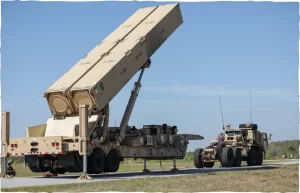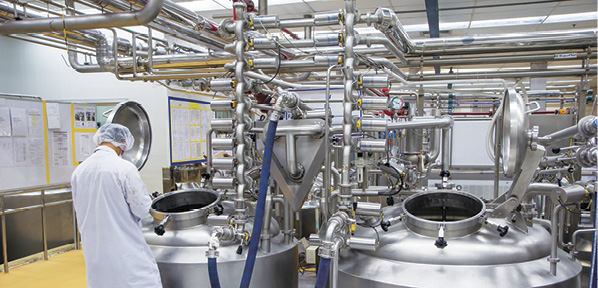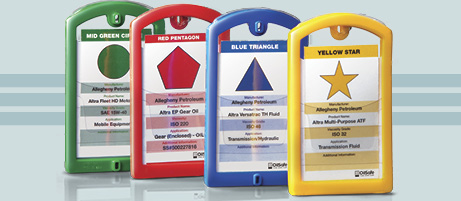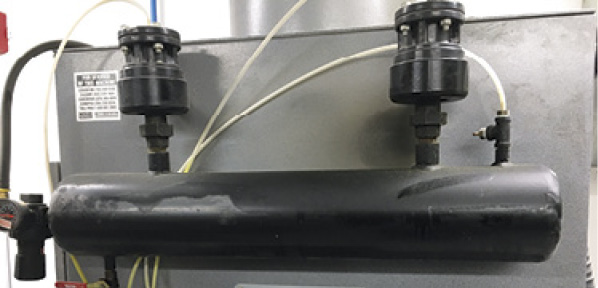Ensuring Stability in Mobile Missile Launchers
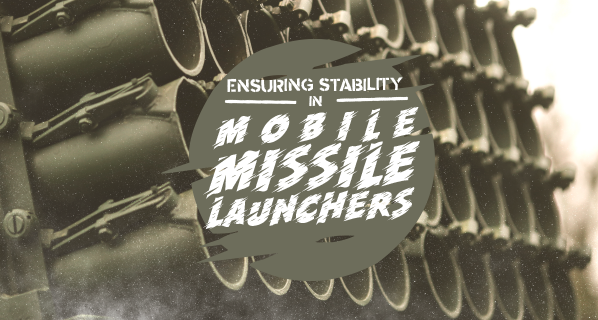
By Kyle Sendatch, Mechanical Engineer, York Precision Machining & Hydraulics
Missile launchers are complex hydraulically powered machines used in various land and sea-based applications. Stability is absolutely necessary for both mission success and personnel safety. Multiple factors need to be considered when designing new or updating existing missile launchers. We are sharing insights drawn from our experience providing solutions that ensure stability in missile launchers. These lessons can inform a wide variety of industries and applications using mobile equipment, both staffed and remotely controlled. We will provide an overview of design and hydraulics in missile launchers, then explores three key topics in the successful design and implementation of such systems: Launcher stability via outriggers; Long-term positioning without drift, via elevation actuators; and preventing backlash during launch events.
Hydraulics and Design Elements in Missile Launchers
Hydraulics have many benefits when implemented within a missile launching system. They can withstand high loads and offer smooth, precise operation. Missile launching systems need to have unyielding stability when deployed and in operation. When performing a structural analysis on a missile launching system there are basic engineering principles that can be employed to increase stability.
The shape of the missile launcher itself has a significant impact on its stability. Increasing the footprint of the launcher will give it a lower center of gravity, therefore increasing its stability. A lower center of gravity will help offset any unwanted forces or moments on the missile launcher once it is deployed.
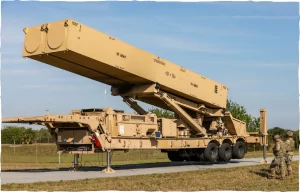
Photo Credit: Spc. Chandler Coats, U.S. Army.
Four Actuator/Lock outriggers stabilize the mobile launcher, while two additional systems lift a mobile launcher into position.
Launcher Stability via Outriggers with Failsafe Load-holding System
Hydraulic stabilizers, or outriggers, can be used to increase the footprint and stability of the system. They are often used in heavy machinery. Outriggers can be manually operated or hydraulically controlled. They are often equipped with outrigger pads that help distribute the weight of the launcher system. Outrigger pads can be many different sizes to help properly distribute the weight of the system on all types of terrain.
One aspect of stability unique to defense requirements is the vulnerability of equipment exposed to enemy munitions. In the case of equipment holding a load, a boom or stabilizer failing would result in the equipment rolling over, jeopardizing the personnels’ safety before they have a chance to react. The vehicle would be rendered incapable of continuing the mission. Losing equipment requires another unit to be repositioned to take its place and can delay a strategic action, not to mention the considerable loss of life and investment.
However, there is a proven solution which eliminates the vulnerability. Outriggers and other hydraulics such as lifting cylinders equipped with a hydraulic rod locking system which will not fail if compromised by enemy munitions. Even if an enemy round put a hole through the hydraulic cylinder and bled all fluid out of it, the rod would not move, and the equipment (launchers in this case) would retain position. The system will stay locked because it is designed to lock instantly when hydraulic pressure is removed, whether accidentally or intentionally. The environment can be made safe, the component replaced, and the risk of death, injury and system loss is mitigated. The system creates added stability during launch but also removes the risk of suddenly shifting or falling if a hydraulic system has any type of failure. It will keep safe any load, explosive ordnance, crew, and vehicle. This innovative failsafe hydraulic rod locking device can be customized.
Another scenario in the deployment and stabilizing of a missile launcher is elimination of the need for cribbing. Because outriggers equipped with a failsafe load-holding system provide a reliable structural solution, there is no need to provide cribbing or other attempts to provide fill material to support launchers and other mobile equipment.
The innovative fail-safe hydraulic rod locking device can provide all the benefits of a high-quality hydraulic stabilizer and has as an added advantage the ability to lock in place at any point along the piston’s stroke. This allows infinite adjustability to accommodate all types of surfaces on which the launcher may be situated. This infinite position locking ability improves the stability and control of the launcher when compared to conventional hydraulics. Because it locks instantly without shudder or other movement, it also assures precision in aim and operation.
Long-term Positioning without Drift
Elevation actuators are used to position missile launchers. One common challenge is the need to hold position for an extended period of time without drift. When a hydraulic cylinder relies exclusively on fluid pressure to maintain position, it becomes susceptible to unwanted movement due to leaking valves, lines, or couplings as well as thermal expansion of fluid. The hydraulic rod locking device can be incorporated here as well. When it is used in an actuator/lock configuration, it can be moved into position then locked in place and will hold the load indefinitely—even for months or years–without drift.
The system also allows maintenance to be performed safely on equipment as it is mechanically locked and not relying on hydraulic pressure or valves to keep it in position. Even under heavy loads the mechanical locking properties it will provide superior performance and provide high stability within the system.
Performing maintenance is another scenario in which a positive mechanical lock is highly advantageous. Especially when service is required in the field, there is limited time and manpower to install auxiliary lock-out systems to protect personnel. This hydraulic locking device allows maintenance to be performed safely and quickly as it is mechanically locked and not relying on hydraulic pressure or valves to keep it in position.
Eliminating Backlash During Launch Events
Backlash, or recoil, presents another challenge for missile launchers, because it can adversely affect accuracy of the missile trajectory, which can result in mission failure and put personnel at risk. Most hydraulic systems are capable of achieving the initial desired position, however, they lack the rigidity to withstand the impulse of a launch event.
This is vital to mission success, because even small degrees of movement off initial trajectory from backlash at the launch site could multiply the effect over distance and cause the flight path of the missile/rocket to deviate from its target. This is another instance in where a hydraulic rod locking device has been integrated into launcher design as they will not move when launch forces are exerted on them. These locks are most often integrated into the main elevation actuators, however, they have also been incorporated in parallel to an alternate source of actuation.
Inn conclusions, this same design can benefit other mobile and fixed load holding equipment such as cranes, and hydraulics on any other engineering system. It can also benefit testing applications, construction equipment and civil engineering hydro control hydraulic systems. Other applications that could benefit from this feature include anything that requires precise positioning to be maintained without slipping or drifting while maintaining a load.
The system is a proven failsafe option for hydraulic load holding and locking. These systems have been incorporated into the current generation of long-distance missile launching systems.
The hydraulic rod locking device is manufactured with high quality precision components. To this day the it has proven to be reliable over many decades of field use It can be customized for any size application and requires no more maintenance than a standard hydraulic cylinder and can be tailored to the needs of each individual application. It is offered as a standalone lock or lock and actuator combination. This means it can be added to existing systems to increase stability or be incorporated as a full system into new designs where needed.

